 National Seminar on
National Seminar on
‘Outcastes Among the Outcastes: Valmiki Community in India’
(December 16-17, 2022)
CONCEPT NOTE
India is a caste-based society and therefore it not only categories communities based on culture and social customs but goes further and discriminates and marginalises certain communities based on varna-caste discriminatory mind-set and practices even today. The legacy of past continues even after 75 years of independence of India with a very progressive Constitution. The discriminative varna-caste system is so well established in the mindset of Indians that even education and exposure to other countries, societies and cultures have not erased the inhuman ideology and practice. Buddha, Phule, Pariyar, Ambedkar have tried to do away with the system and ideology in various ways and yet the varna-caste discrimination and hatred raises its head in various forms and ways and contexts. The Avarna or the outcastes or the Dalits and women among them are the most discriminated and excluded. The Valmiki among these communities are the worst exploited and excluded among the outcastes facing the brunt of the discrimination from other Indians who claim themselves Indians abiding by the Constitution.
The varna-caste as a social system even today determines the nature and characteristic of socio-economic and political institutions in India, relations among them and dictates the role and responsibilities of the role holders in these institutions. Those who challenge the system are looked with suspicion to say the least. The varna-caste as an ideology, system and practice has penetrated not only the social life of Indians but also the economic and political lives of Indians. Put it bluntly belief and behaviour of an Indian often enough is influenced by the varna-caste they belong to. India is on the path of modernisation, new India as some like to call. Is it really so? India is fast accepting modernisation but does it want modernisation to be accompanied by modernity, a new critical thinking, of being and of an inclusive citizenship?
Education and enhancement have gone up in many communities of Schedule castes but the Valmiki have lagged behind in socio-economic development and political participation. Untouchability is practiced with them the most by other castes but even by other Dalit groups. Some Valmiki have emancipated them through education and by self-efforts largely. However manual scavengers are considered the lowest of the poor in the Dalit hierarchy. Even today the Valmiki are isolated, compelled not to use public spaces, public utilities, and services; discriminated and deprived of equal access to social and economic opportunities. Social exclusion must be seen from the articulation of political, social, economic and spatial dimensions. Valmiki communities across India and some parts of south Asia are largely engaged in cleaning and sanitation related occupation are into the cleaning of filth, human and animal excreta, disposing dead and rotten bodies of animals, cleaning private and public latrines, cleaning gutters manually, etc. They are marginalized socially, economically and politically. In matters of health and education, considered to be pillars of development by Amartya Sen, these communities are far behind. According to the social hierarchy among both higher and lower castes, they occupy the lowest of the low position as they are night soil remover. In almost all human-made and natural disasters the handling and disposing of human and animal decomposed bodies, rotten grain, food are done by the members of these communities, largely without any proper protection gears, namely bare handed.
In this context CCD has planned to organised a national seminar exclusive on Valmiki community in India in order to highlight and address various issues, challenges and understanding of their ‘lived’ lives. Considering that the community lacks academic attention in the ‘Dalit Studies’ as such, the seminar will focus on Valmiki through the spectrum of change and continuity over the years in terms of their socio-economic status in India.
CCD therefore, invites participants from various field of life such as students, scholars, social activities, academics, government officials and other citizens who are working with or doing research on Valmiki community, to present paper in the seminar. The paper could be a research paper, observations, experiences, interventions and experience of working with the community. We welcome people to participate, share views, take part in discussion and listen to various views on the community.
Seminar Themes and Topics
This seminar invites papers on the following themes focused on Valmiki community per-say and not Dalit in General.
- Valmiki Community in India: Discrimination, Marginalization and the Pathos of Caste Hierarchy
- The Caste Identity and Hierarchy with the Caste Structure
- Valmiki community and nature of exploitation: Theoretical underpinning
- The Occupational Stigma and Challenges of Valmiki Community
- Manual Scavenging and Social exclusion
- Dalit hierarchy, Status of Valmiki and Gender
- Separated Habitations and freedom of movement: Valmikis Stigmatized Identity
- Change and Continuity in Status of Valmiki Community in India
- Social changes among Valmiki
- Community Identity: Stigmatization and Evolution.
- Economic changes among Valmiki,
- Urbanization, migration and Valmiki,
- Education as an instrument of change – how and how much?
- Legal and Human Rights of Valmiki Community
- Indian Democracy and the Valmiki’s Struggle for Equality and dignity
- Sustainable development goals and Valmiki – Issues and Challenges
- Political mobilization and Valmiki Emancipation (Movement, Assertion and Participation)
- Indian citizenship and status of Valmiki
- Governments Affirmative Efforts and Valmiki
- Legal and Developmental Interventions: Outcomes and Gaps
- Government schemes- entitlements or tokenism?
- Government schemes and relevance in context of Valmiki
- Modernization, Modernity and Valmiki
- Valmiki in ‘New India’.
- Changing nature and forms of social discrimination
- Modern India Vs Modernity – Practice of exclusion and Inclusion
- Upward mobility of Valmiki: At what cost?
- ‘Privileged/Elite’ Valmiki – Role and Responsibility,
- Civil Society and Valmiki Community
- Experiences, Observations and Lessons Learnt
- Action Research and Success Stories
- ‘I am Valmiki: My Life –My Story’– Personal Narratives
By bringing people from various fields’ together to a discussion, sharing and listening of views on Valmiki community, we hope to come out with better insights on the socio-economic reality of the community. It would not only bring out the intricacies of the status of the community in present times but could be a unique contribution to the sociology and anthropology of Dalits in India.
Paper Submission
Interested people can send their Abstracts (of 150-250 words, in Gujarati, Hindi or English) to centreforculture@gmail.com by July 31, 2022. Presenters will be informed about the selection of their abstracts by 20 August, 2022. The selected papers by the authors will be later published in a book form if they meet the publishing requirement and quality. The final paper needs to be about 3000 words minimum and 5000 words maximum.
Venue
The seminar will be held on 16th and 17th of December, 2022 at Centre for Culture and Development[1], Vadodara, Gujarat.
[1] The CCD campus is about 10 kms from Vadodara railway station. From any point in the Vadodara city, come to Gotri and take the road to Sevasi – Sindhrot. The CCD campus is about one and half kilometre from Sevasi village on the main road next to Baroda Homeopathic College and Xavier Technical Institute, opposite Sonarkui Village. For further details on CCD see our website: www.ccdgujarat.org

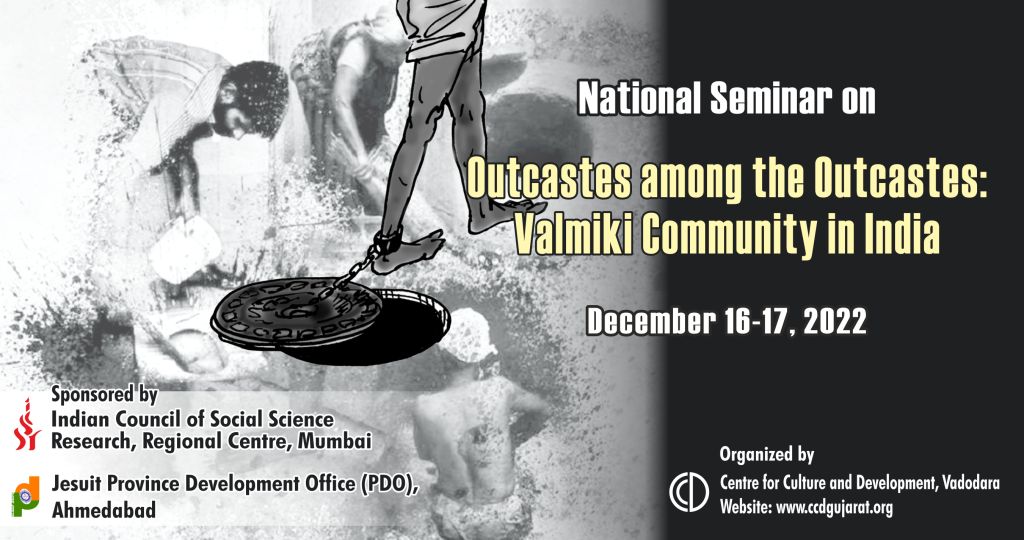
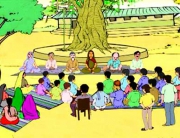
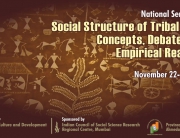
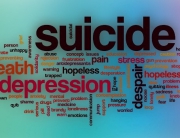
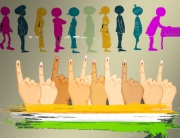
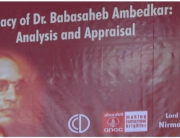
Add Comment